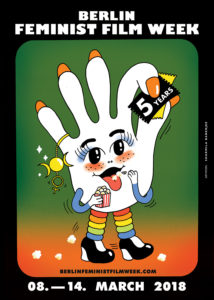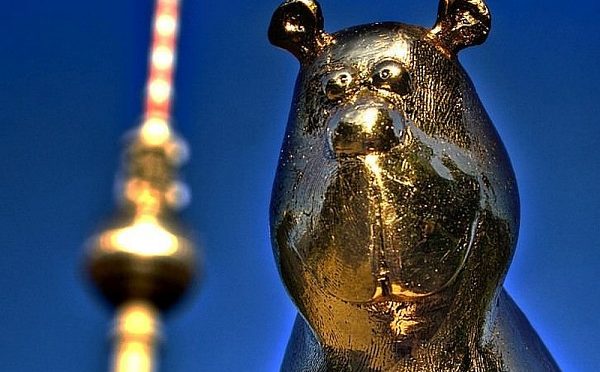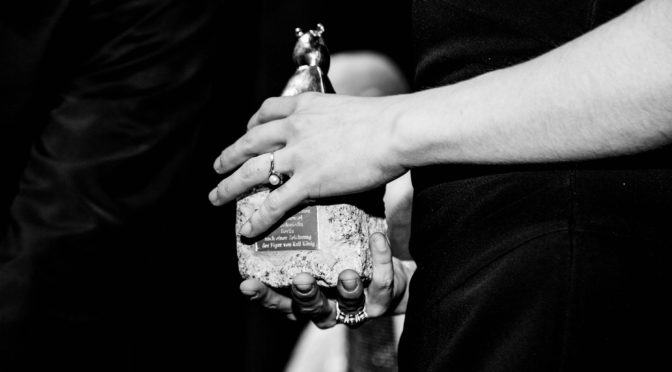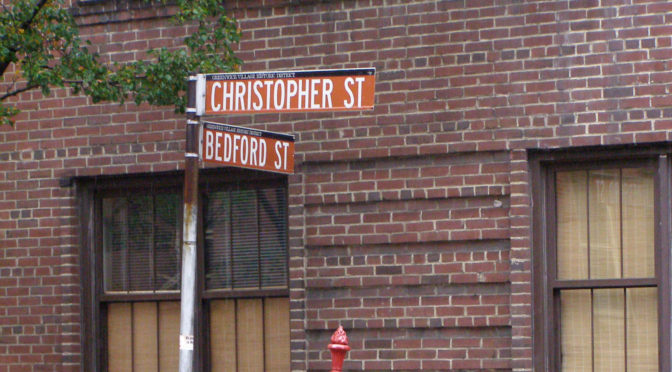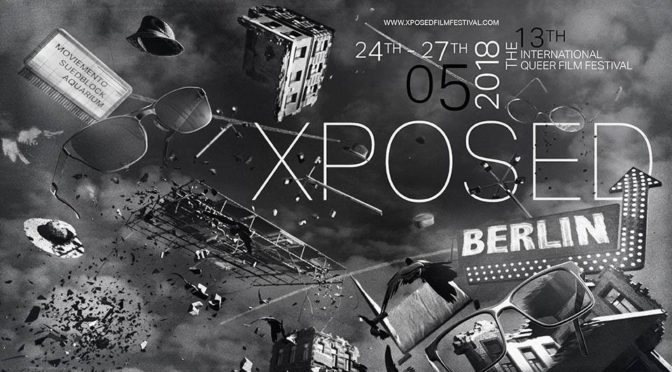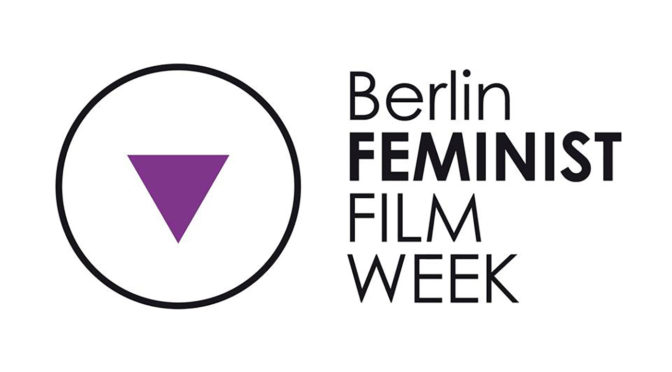TEDDY Readers Award powered by queer.de In 2019 queer.de will be the media partner at the TEDDY and will present the Teddy Readers’ Award. If you would like to become a member of the jury and participate in the decision making process for the “Teddy Readers’ Award powered by queer.de“, you can apply to queer.de from now until 21 December 2018.
Category Archives: Blog
Film entry 2019
In order to submit a film to the Berlinale please send the film and the completed film entry form to the festival before the given deadline. Please have a look at the following link. There you find all information about submitting a film to TEDDY / Berlinale:
https://www.berlinale.de/en/branche/_filmanmeldung/filmanmeldung_allgem/index.html
CSD 2018 – A Moment of Remembering
Christopher Street Day has arrived in Berlin for the 40. time and promises to be bigger and more colorful than ever. The annual celebration of the LGBTQI* community is certainly one of the most fabulous events of the year, however (and this is important) it is also a demonstration. While the Western world can rightfully be proud (no pun intended) of its achievements regarding tolerance and acceptance, it is also crucial to remember that LGBTQI* lives are under constant threat in many parts of the world; that different members of the community are treated differently by the hegemonic domain and by the community itself as well; that CSD should not be taken for granted; and that looking at the history of this joyous event is a must.
The sun shines, the summer heatwave still strikes hard, and with the magic of last night’s lunar eclipse in the air everything is given for a wonderful parade in the center of Berlin. Music, dancing, pride, and a vibrating feeling of freedom will fill the streets today. This in itself is very powerful. But the underlying political drive is what makes CSD (and any other pride event) special. Granting visibility to an oppressed community (very much present tense here), reclaiming public spaces, and protesting oppression, exploitation, ignorance, and discrimination with loud music, loud colors, glitter, and the most exuberant dance moves makes CSD striking. Politics mixed with happiness and proud self-expression. The flamboyance, playfulness, and excess of expressions is beyond mere merriment and gaiety: it all is something of the core of queer politics. It is subversive, it is liberating, and it is empowering.
While the party vibes are certainly appealing, it is also important to remember what we celebrate and what are we marching for. We should honor the astonishing achievements of the community and the queer social movements across the globe because these are hard-fought achievements. But let me focus on the hard-fought element today, as I believe this is something that sometimes fades away under the pulsing beats. On this day, I would like to dance, yes. But I would also like to take my time to remember.
I would like to remember today all those who fought unstoppably for a world in which I don’t have to hide my desire and love.
I would like to remember those who passed away in the fight.
I would like to remember the first stones thrown.
I would like to remember the tears, the laughter, the sweat, and the love that characterized the journey to this day.
I would like to remember the very first march.
I would like to remember how other social movements helped our cause and how we helped others.
I would like to remember the bravery, the creativity, and the immense will-power of those who fought for LGBTQI* lives and causes.
I would like to remember so I would not forget how we got here. Looking into the past is crucial. It fights forgetting, and for the LGBTQI* community this is especially important. Our his/herstory_ies are not detailed in history books and the materiality of these is not safeguarded in publicly funded institutions. We need to remember. We must. Otherwise what are we building our future on?
But today I would also like to think of others who need our thoughts and support.
I would like to think of those whom are still fighting really hard.
I would like to think of those whose fight is characterized by fear for their lives and physical well-being.
I would like to think of those whom are running away from their homelands out of fear for their lives and with the hopes for a freer and happier future only to find themselves being detained and interrogated in their chosen land of “tolerance”.
I would like to think of the trans* people who have been murdered for being trans*.
I would like to think of all those kids and young people who have been and whom are being bullied in their local communities for being different.
I would like to think of those who still hate themselves for being different.
And as the parade begins and I start to walk and dance with the crowd on the heat-vomiting asphalt sea of Berlin I would like to keep remembering and thinking of others with whom I cannot share this joyful parade. Perhaps this is where some of the power of CSD lies.
The TEDDY AWARD wishes everybody a happy, liberating, and empowering CSD.
13. XPOSED Quer Film Festival
This year, 43 queer shorts films from all over the world have done just this and found their way into the XPOSED program. 43 shorts that explore and celebrate queerness in filmmaking, finding a way of storytelling that challenges not only heteronormativity but also conventional cinema. Queer film icon Mara Mattuschka opens XPOSED by personally presenting her newest work PHAIDROS and will be our guest of honor at the Artist in Discussion session in Aquarium.
>>http://www.xposedfilmfestival.com/
In Conversation with Karin Fornander, Founder of the Berlin Feminist Film Week

The Berlin Feminist Film Week has been going since 2014 – what
inspired you to found this festival, and how has it developed in the
years since?
I wanted to work with feminist issues, something I had been interested in for a long time and was the subject of much of my university work. After uni, I found myself in an unrelated field and as I quit my job, I wanted to do something that was relevant to those interests. The film festival idea kind of happened in conversation with Mobile Kino, the cinema project I was involved with and after speaking about a short film night it gradually evolved into a whole festival. Since then, the program has gotten bigger, the team and the audence have both grown, but we still get by without much funding and have kept much of the DIY spirit. We also started taking submissions, which adds to the democratic and also feminist spirit of the festival as all filmmakers and our selection committee help shape how our feminist discourse looks like.
The word ‘feminist’ has, for many, connotations of exclusion, often
seen to privilege the concerns of white-cis women over those of
marginalised individuals within the female community. What efforts have you gone to counter this?
I’m obviously a white cis-woman with a university-degree, and I am aware that will bias the my views of feminism. That said, knowing this has also influenced our focus on bringing in as many films as possible from other countries. This year, we mainly have non-english speaking feature films and a lot of the shorts are also from different gender, racial, cultural and geographical perspectives. Our festival is not a women’s film festival, it is a feminist festival with focus on inclusion of all women, non-binary, queer and trans filmmakers and think a lot of intersectionality. I think you can always do better, but we put an emphasis on telling stories from all gender perspectives and explore cinematic views that are often not represented.
What are the major obstacles facing female and non-binary
film-makers today, and how can a platform like the BFFW help change
this?
I‘m sure most filmmakers dream about showing at the big festivals, that is a recoginition we can’t offer and we of course hope that all the filmmakers we screen films from will be able to enjoy international widespread success and recognition one day, if that is what they want. Resources for female and non-binary filmmakers are often limited; many stick to making documentaries as it is cheaper to produce. Film funding is often reserved for male filmmakers, both public and private funding have these tendencies in most countries I know of. A quota in Sweden has led to public funding being split even between men and women, hopefully also more inclusion for non-binary filmmakers. Private funding however, also plays a big role in film production, and you can’t put quotas on that. But I do think that all these smaller film festivals combined will signal to bigger film festivals that it is time to change. Maybe our festival will be obsolete one day, but I also like to see it as a collection of films showing these perspectives and a space where you come to and enjoy these in the company of like-minded people.

We’re increasingly seeing greater visibility of LGBTQ individuals in
mainstream cinema, with the success of ‘Moonlight’, ‘Call Me By Your Name’ and ‘God’s Own Country’ in recent years. Those films focus on male homosexuality – how can we improve the visibility of female queerness on screen as well?
Yeah, that’s an amazing development. But you’re right, female queerness is still very lacking on screen. Which on the one hand probably has to do with less visibility of female filmmakers in general. Films such as ‘Blue is the Warmest Colour’ have some success, but that was directed by a man. I think by improving condition for female* filmmakers in general and also reclaiming the gaze on queer and lesbian women from the male gaze as something pornograhic, we can improve visibility. But something has to change at a top tier level. In mainstream cinema, female perspectives are still very much seen as “for women” while male protagonists are believed to be more universal and speak to both men and women – this has to change!
The opening film, ‘They’, follows the life of a young individual at
the delicate stage of gender transition. How can films like this help
influence and inform young people’s perceptions of gender and sexuality? And how is that reflected in your programme?
I think representation is important in term of widening everyone’s, but especially young people’s perception of what is “allowed”. When we’re young, a lot of our information comes from our peers or from media, if we never see ourselves reflected in those images represented, it is difficult to accept yourself. I think our programme keeps an ongoing conversation of what gender and sexuality are and mean to us, how that is reflected in film or even how film can shape these perceptions.
We’re at a hugely uncertain point in the struggle for equality of
gender, sexuality and race; we’re facing the appalling revelations of
sexual abuse and misogyny in the film industry, rapid escalation of
racism and xenophobia across Europe, and a growth of religious
conservatism in the US, Latin America and parts of Europe that curbs the rights of LGBTQ people. But we’re also experiencing a major backlash to those attitudes. How do these current-day conflicts impact the film-making we see in the festival this year?
We’ve got many films by female filmmakers conceptualizing sexual violence and rape, many of them of course produced before the MeToo campaign (re-)started. But I think there will be more courage to tell these stories from female and queer perspectives now. I think the movement has done a good job creating an arena for women to speak up, but I would like to see more inclusion of queer, trans and non-binary people who are also subjected to a lot of violence and stigma. We have tried to include perspectives from feminists from oppressed areas, such as Kurdistan and Palestine. The documentary ‘The Judge’ does a brilliant job of showing that muslim women are not the suppressed individuals Western media make them out to be but also powerful and their own subjectives. I think in general a lot of our filmmakers use film to critically assess these conflicts and hopefully bring attention to the absurdity of them.
Within the programme are some older films by female/non-binary
filmmakers, like Jane Campion’s 1984 short, ‘After Hours’. How can a look at past works help form the future of feminist film production? And what trends do you predict for feminist filmmaking?
I think a look at past work is always important and interesting. Feminism didnt come about in a day, and obvisouly perspectives change, but at the core there will always be ideas that we carry with us, although maybe refined and updated. I think any creative process gets better from learning from history and building from that, none of us like a vacuum. I’m predicting, well hoping, that feminist filmmaking won’t be a niche, but that intersectional perspectives are taken into account in filmmaking in general.
